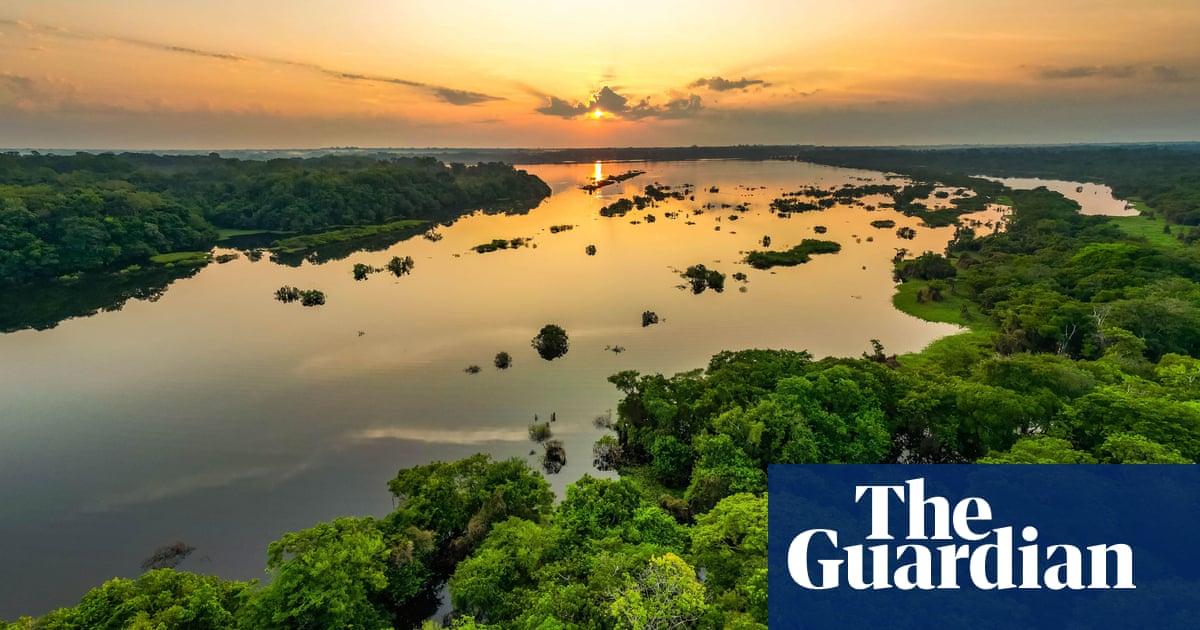European member states may be allowed to count controversial carbon credits from developing countries towards their climate targets, the European climate commissioner has said as states meet for a crucial decision on the issue.
The EU will discuss on Wednesday its target for slashing carbon dioxide by 2040, withan expected cut of 90% compared with 1990 levels, in line with the bloc’s overarching target of reaching net zero by mid-century.
If agreed by member states, and passed by the EU parliament, that goal is then supposed to be translated into an international target – known as anationally determined contribution(NDC) – pegged to 2035, under theParis agreement.
But green groups are furious over proposals that would allow part of the target to be made up from buyingcarbon offsetsfrom overseas. They argue that the EU should meet its targets domestically:more than 130 groups wrote to express “extreme concern” over the proposalslast month.
Gareth Redmond-King, the international lead at the Energy and Climate Intelligence Unit thinktank, said: “There is no need for them to use credits. If such a major emitter is not going as far as they demonstrably could with emissions cuts, then the overall global ambition is lower than it could be. This would risk undermining the EU’s reputation for climate leadership at a time when that leadership is most needed.”
Wopke Hoekstra, the EU climate commissioner, told the Guardian that developing countries were keen to gain EU financing through carbon credits, for projects such as tree planting or forest restoration, and that it was possible to ensure that such offsets resulted in genuine emissions reductions. He said the possibility of allowing this was “potentially very attractive”.
“The planet doesn’t care about where we take emissions out of the air,” he said. “You need to take action everywhere, but it certainly also helps to do that both here and elsewhere.”
He said developing countries in Africa and Latin America were interested in carbon credit projects. “There is huge appetite from our friends in the global south,” he said.
But such projects would have to be in addition to actions developing countries were already taking to meet their own emissions targets, rather than replacing them. “If it is additional, I think it is a great idea,” he said. “And what we will not have a shortage of is ambition to do stuff at the same time in Europe. There’s no one who doubts the very significant level of ambition [for emissions cuts within the EU].”
Hoekstra acknowledged there had beenproblems in the past with carbon credits that were found to be worthless. “It all stands or falls with the integrity of such a system, where certification, verification [of carbon credits], is absolutely essential,” he said. “But humanity has solved more difficult problems.”
Wednesday’s talks on a 2040 emissions target could also be derailed by a small number of member states, led by France,mooting “decoupling” the domestic target from the NDC. They argue that the NDC, with its 2035 emissions target, could be delivered in September without the 2040 figure being agreed, implying that a less ambitious 2040 goal could be agreed at a later date.
Hoekstra was firm. “We will come up this Wednesday with our 2040 climate target, and from that we will derive an ambitious NDC,” he said. “And I am confident that we will deliver that exact number by September, as we were asked for by the secretary general of the UN.”
Sign up toDown to Earth
The planet's most important stories. Get all the week's environment news - the good, the bad and the essential
after newsletter promotion
All countries are expected to lay out their NDC beforeCop30, the crunch climate summit in Brazil this November, butfew have yet done so. China’s NDC will be crucial, especially as Donald Trump has taken the US out of the Paris agreement.
Hoekstra blasted China for planning to build new coal-fired power plants, which he said was “against what was agreed at Cop28”, whencountries resolved to “transition away from fossil fuels”. He said: “Building new ones is a very bad idea.”
It is unlikely thatthe NDCs presented at Cop30 in Belemwill be sufficient to prevent temperatures breaching the vital threshold of 1.5C above preindustrial levels contained in the Paris agreement.
The Brazilian hosts of the meeting have said NDCs will not be negotiated at Cop30. But Hoekstra said the summit must come up with an answer for how to bridge any gap between the commitments made and the 1.5C limit.
“It’s difficult to leave that proverbial elephant in the room and not discuss it. We do need to have political space to discuss the impact of the NDCs and the way forward.”
